The Reality of “Free” Solar Panels
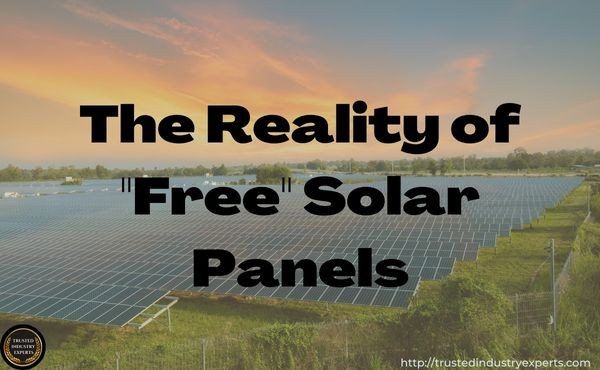
Solar energy is one of the most promising forms of renewable energy. It provides a clean and sustainable source of power while reducing our carbon footprint. However, the initial cost of installing solar panels can be a significant barrier for many people. That’s why many companies offer free solar panels to make solar energy accessible to everyone. But the question is, are free solar panels a good deal? In this article, we’ll explore this question and provide you with all the information you need to make an informed decision.
When we hear the word “free,” it’s natural to assume that there are no hidden costs. Unfortunately, this isn’t always the case with free solar panels. In most cases, companies that offer free solar panels will still require you to sign a long-term contract or solar lease or ppa agreement. This agreement typically lasts for 20 to 25 years and includes clauses that can make it difficult or expensive to terminate the contract early.
Additionally, the company will retain ownership of the solar panels, and you won’t be able to remove or relocate them without the company’s permission. This can be problematic if you want to sell your home, as the new buyer will have to take over the contract.
The Truth About Free Solar Panels: Hidden Costs You Need to Know
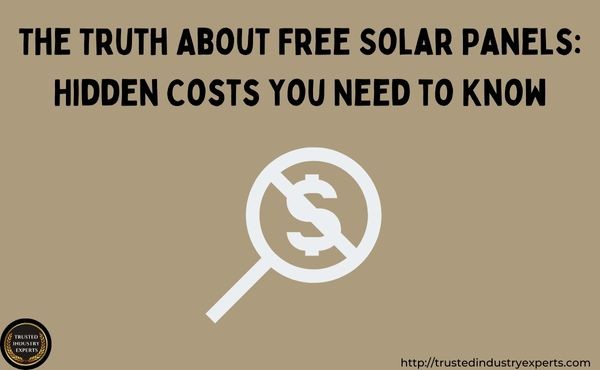
As homeowners become more environmentally conscious and seek to reduce their energy bills, many are turning to solar panel systems as a solution. However, the high initial cost of installation can be a hurdle for some, leading them to seek out free solar panel offers. While the idea of free solar panels may sound appealing, there are potential hidden costs that homeowners need to be aware of before signing up for these deals.
1. The Requirement for Long-Term Contracts
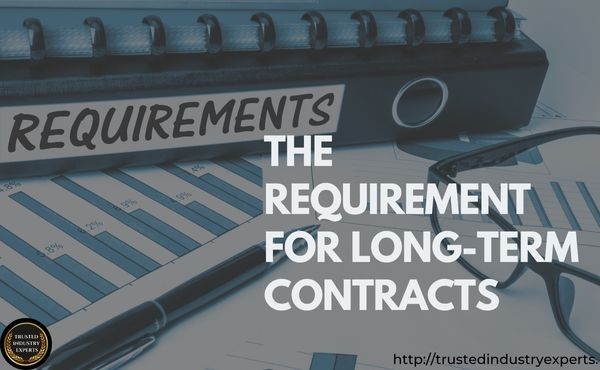
Most companies that offer free solar panels require homeowners to sign long-term lease agreements ranging from 20 to 25 years. While this may seem like a good investment at first, you must consider the fine print. During this lengthy contract period, the company will hold ownership of the solar panels, making it challenging to make any changes to your current free solar system prices. Also, if you decide to end the contract early, you’ll incur substantial penalties, making it almost impossible to terminate.
2. Hidden Maintenance and Insurance Costs
Free solar panel offers commonly come with hidden costs that homeowners often overlook. Maintenance costs can add up as homeowners are obligated to maintain the panels, and these costs can be high if the panels require repairs or replacement. On top of that, the homeowner is responsible for insurance, which can result in unexpected increases to their energy bill.
3. Higher Electricity Bills
Companies with free solar panel offers often take advantage of homeowners by setting the solar electricity rate at a higher rate than their conventional energy supplier. While this might not seem like a significant issue initially, it means higher bills for the homeowner for the foreseeable future.
4. Reselling the House
Most people plan to sell their home eventually. However, with the solar leases and ppas contract in place, the new buyer will have to take over the contract. This can be a significant issue, making it difficult to sell your home, given the complicated terms in the contract.
5. Loss of Eligibility for Federal Tax Credit
If you solar leases and ppas or sign a contract to get free home solar panels, you will not be eligible for the federal tax credit on solar panel installation. You’ll only be eligible if you purchase the solar system outright.
Many homeowners may be lured into selecting free solar panels offers, which seem like a steal at first glance. However, it’s essential to consider the hidden costs associated with these deals. Homeowners should take the time to understand the lengthy contract details and any hidden costs, such as maintenance and insurance costs. Furthermore, they should choose a reputable solar panel company that offers transparent terms and focuses on customer satisfaction. Homeowners must weigh their options to determine whether to purchase or solar leases and ppas a solar panel system. This approach ensures that they make an informed decision, reduce their energy bills, and help save the planet.
The Cost of “Free” Solar Panels:
While you may not have to pay upfront for the solar panels, the long-term contract can end up costing you more in the long run. The cost per kilowatt-hour (kWh) of electricity from the solar panels may be higher than the cost of grid electricity. In some cases, the cost can be up to 30% higher than the cost of grid electricity.
The Hidden Costs of “Free” Solar Panels: Why the Long-Term Contract Might End Up Costing You More
Renewable energy is an attractive alternative to traditional grid electricity for many homeowners. Solar panels, in particular, have become increasingly popular as the technology has improved and the cost has decreased. It’s no wonder that companies are offering “free” solar panels to homeowners as a way to promote sustainable energy. However, while the upfront cost of installation may be waived, the long-term contract can end up costing you more than you’d expect. In this blog post, we’ll explore why the cost of electricity from “free” solar panels may actually be higher than grid electricity and what you should consider before signing a long-term contract.
It’s important to remember that the company offering free solar panels on your roof is in business to make a profit. While they may waive the upfront cost of installation, they still need to cover their costs and make a profit. This means that the cost per kilowatt-hour (kWh) of electricity of solar panels on your roof produce may be higher than the cost of grid electricity. In some cases, this cost can be up to 30% higher. This means that while you may be saving money on your electricity bill initially, the savings may not be as significant as you’d expect in the long run.
One alternative to “free” solar panels is to finance the installation yourself using a solar loan. Many lenders now offer favorable terms for solar loans, including low interest rates and long repayment periods. Additionally, you can take advantage of federal solar tax credit, which can offset up to 26% of the total cost of installation. By financing the installation yourself, you’ll own the solar ppas outright and can benefit from the energy savings without being locked into a long-term contract.
Long-term contract for “free” solar panels
If you do choose to sign a long-term contract for “free” solar panels from the government, it’s important to read the fine print carefully. Some contracts may lock you into a fixed monthly fee regardless of the actual energy generated by the solar panels from the government. This means that if the panels underperform or you use less energy than expected, you’ll still be required to pay the same amount each month. Additionally, some contracts may include escalator clauses, which increase the cost per kWh over time. This means that your energy savings may decrease over the life of the contract.
Solar power purchase agreements
Another option for homeowners is a solar power purchase agreements (PPA). Under a PPA, a solar installer will install and own the solar panels on your property, and you agree to purchase the energy generated by the panels at a fixed rate. While similar to a long-term contract, a PPA typically includes flexible terms and more favorable pricing. Additionally, many states and local governments offer government solar incentives, such as rebates or tax credit, for homeowners who install solar panels. These incentives can further offset the cost of installation and energy savings.
Long-term costs
While “free” solar panels may seem like an attractive option, it’s important to consider the long-term costs before signing a contract. The cost per kWh of electricity from solar panels may be higher than grid electricity, and the fine print of a long-term contract can lock you into fixed fees or escalator clauses. By financing the installation yourself or exploring alternative options like a PPA, you can own the solar panels outright and benefit from energy savings without hidden costs. As the solar industry continues to evolve, it’s essential to stay informed and make the best decision for your home and finances.
It’s important to remember that the company offering the free solar panels is in business to make a profit. They need to cover their costs and make a profit, so it’s not surprising that the cost of the electricity generated by the solar panels is higher than the cost of grid electricity.
The Alternatives to “Free” Solar Panels:
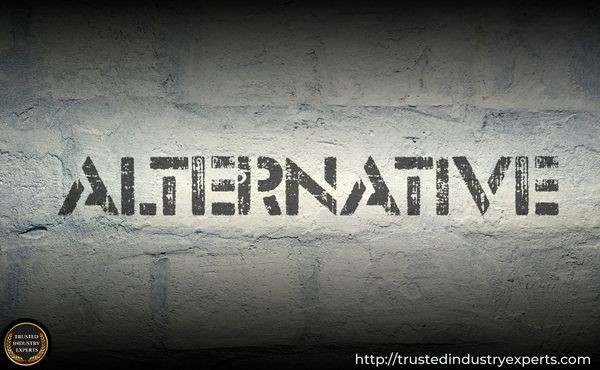
If you’re interested in solar energy but don’t want to sign a long-term contract or solar lease agreements, there are other options available. One option is to purchase the solar panels outright. While this can be a significant upfront cost, you’ll own the panels, and you won’t be tied to a long-term contract. Additionally, you’ll be able to take advantage of any government incentives or tax credit that are available for solar panels installations.
Going Solar without Long-Term Contracts: Owning Your Solar Panels Outright
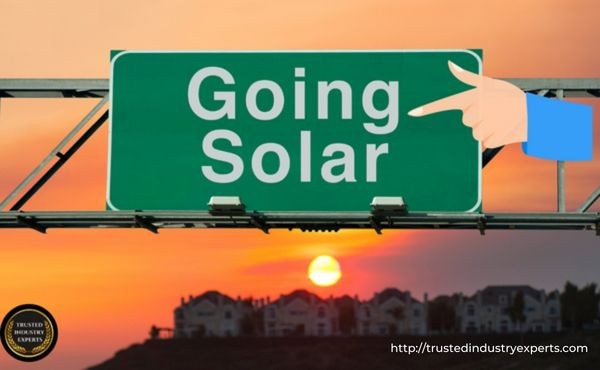
Solar energy is a hot topic in the world of sustainability, and for good reason. The sun is an abundant and renewable source of energy and tapping into this source is essential to mitigate the negative impact of fossil fuels on the environment. However, many homeowners are hesitant to pursue solar energy due to the long-term commitments and high upfront cost associated with solar panel installations. Fortunately, there is an alternative to signing long-term contracts or lease payment: purchasing your solar panels outright.
The term that describes this alternate approach is getting a Power Purchase Agreement or PPA or Solar Purchase Options. Instead of signing up with a third-party solar company that installs and owns the panels and then you pay them for the electricity the solar system produces or a monthly fee, you can buy the entire solar system owner. What this means is that there’s no such thing as zero money down option on this arrangement, but it can help you save money in the long run.
Solar panel system outright
When you buy the solar system outright, you are responsible for the upfront cost or up front cost. This no cost can definitely be intimidating, but it can be worth it. Once you have paid the cash, you own the solar system ownership, and do not have to deal with interest payments. This means that all the electricity produced by the panels belongs to you and you can use it to offset your utility bills.
Financing Options are available for the initial cost of buying the panels outright, including personal loans and PACE financing. PACE financing stands for Property Assessed Clean Energy financing and is a way to finance energy efficiency of the solar system, water conservation, and renewable energy upgrades to your property. Most homeowners can qualify for PACE financing, and payments are collected with property taxes. This is a way of bypassing credit ratings.
Owning the panels outright also means that you are eligible for any government incentives or federal solar tax credit that are available for solar panel installations. This means that you can save even more money, and it will help you offset the upfront cost of the solar panels. There’s no doubt that purchasing your solar panels outright can be a significant investment, but it’s an investment that pays dividends in the long run.
PACE financing
Now you know that buying your solar panels outright may be a good idea for you. You don’t need any long-term contracts, and you can own the entire solar energy system without having to worry about monthly payments. You can finance the upfront costs using personal loans or PACE financing and be eligible for government incentives or tax liability credits. In the end, owning the panels outright is a way to ensure that you have control over your electricity production and can help reduce your carbon footprint. So why not research at solar lease one company, see your financing options, and get started on your own path to greener energy today!
How to Finance Your Solar Panels with a Loan
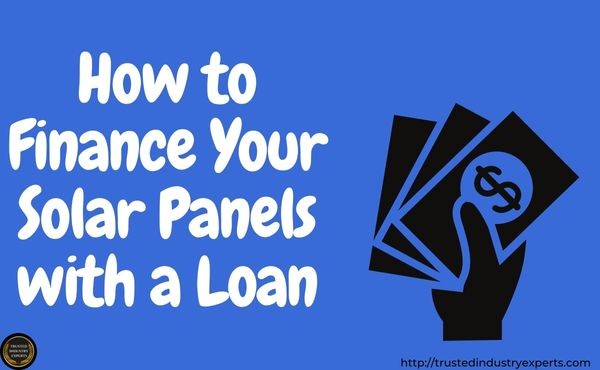
Are you excited to solar power your home with solar panels but worried about the upfront costs? Don’t worry; there’s a financing option that can make solar energy more affordable. Loan financing is an excellent way to spread the cost of solar system installation over time. You’ll get the benefits of clean, renewable energy without breaking the bank. In this blog post, we’ll explore how you can finance your solar panels with a loan.
1. Understanding Solar Panesl Loans
Solar panel loans are designed to help homeowners install solar panel with a reduced financial burden. These loans are often unsecured and come with interest rates that are lower than traditional loans. Some rooftop solar loan providers allow homeowners to pay off their loans over 5-20 years, with monthly cash payment that are lower than the cost of their electricity bills. To get a solar lease or ppa loan, homeowners must have good credit, steady income, and proof of their solar panel installation costs.
2. Choosing the Right Lender
When selecting a loan provider, it’s essential to compare rates, terms, and fees. Many banks and financial institutions now provide solar panel loans, both secured and unsecured. It’s best to do your research and find a reputable lender who specializes in renewable energy loans. Some lenders offer loan calculators online that help homeowners understand their repayments and install costs.
3. Benefits of Financing Solar Panels with a Loan
Solar panel loans are different from traditional loans in that the interest is tax-deductible. This means that homeowners can reduce their overall tax liability while benefiting from renewable energy. Additionally, many solar panel loans come with favorable terms, like no down payment, no prepayment penalties or hidden fees.
4. Factors to Consider
Before getting a solar loan, homeowners should consider the following factors:
– Total cost and size of the installation
– Monthly loan repayments
– Interest rate and loan term
– Savings on energy bills
– Tax credits and incentives
Solar panel loan financing makes it easy and affordable for homeowners to install solar panels. With a solar loan, homeowners can reduce their energy bills, lower their carbon footprint, and increase their home’s value. When choosing a solar panel loan, it’s vital to work with a reputable lender who provides favorable financing terms. With the right financing plan, you’ll enjoy the benefits of renewable energy without breaking the bank.
A solar loan is an excellent option for homeowners who want to install and buying solar panels but don’t have the upfront costs. With the right financing plan, you can go solar and benefit from tax credits, reduced energy bills, and a positive impact on the environment. So, if you’re considering going solar, be sure to explore your financing options and find the right lender to make your solar dream a reality. Another option is to finance the buying solar panels through solar loans. Many banks and financial institutions offer loans specifically to get free solar panels installation company. While you’ll have to make monthly payments on the loan, it can be a more affordable option than signing a long-term contract.
Free solar panels may seem like a great deal, but they come with some significant drawbacks. The long-term contract can be expensive and restrictive, and the cost per kWh of electricity generated may be higher than the cost of grid electricity. However, there are alternatives available that may be more affordable and less restrictive. If you’re interested in solar financing, it’s important to do your research and consider all of your options before making a decision.



